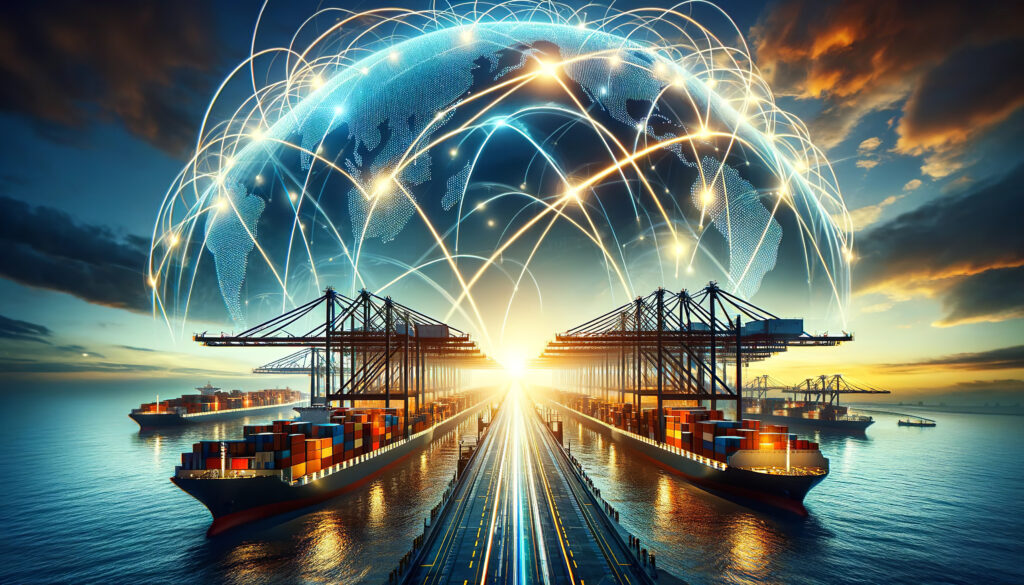
Bloomberg News reports that the gateways to global trade are geopolitical assets that face costly conversions to retool in a new era of rivalry, automation, and green energy. They write:
For centuries, control of the world’s biggest shipping centers helped expand empires, spark and settle wars, ease poverty and build middle classes while giving international companies access to cheap workers and cash-flush consumers in distant markets.
Along the way, maritime ports evolved from trading posts and naval bases into economies within economies that supercharged globalization, becoming vital junctions for energy flows, hubs for infrastructure like rail lines and power stations, and clusters for industrial production, warehousing and distribution.
Now, both old and new gateways for seaborne commerce— responsible for handling 80% of the world’s $25 trillion in annual merchandise trade—are economic fortresses in the great-power struggles of a multipolar world.
Meantime, they’re having to undergo costly and painstaking conversions to digital technologies, automation and green energy with a price tag estimated at €200 billion ($216 billion) a year in new investment, for a total of €2 trillion over the next decade.
“It’s now much clearer that ports are geopolitical assets and that emphasis hasn’t always been there,” said Peter de Langen, the owner and principal consultant of Ports & Logistics Advisory, based in Malaga, Spain. […]
In times of peace and prosperity, ports operated out of public view unless something went wrong — pandemic supply-chain congestion, a fuel spill or longshoremen going on strike. Efficiencies driven by privatization were encouraged; environmental costs were often overlooked. All of that has now changed.
“A tiny little ragtag band of insurgents—the Houthis—are slugging it out with the US Navy for practically a year,” underscoring the vulnerability of the world’s sea lanes, said Isaac Kardon, senior fellow for Chinese studies at the Washington-based Carnegie Endowment for International Peace. “Protection and security are the watchword now.”
Read more here.



